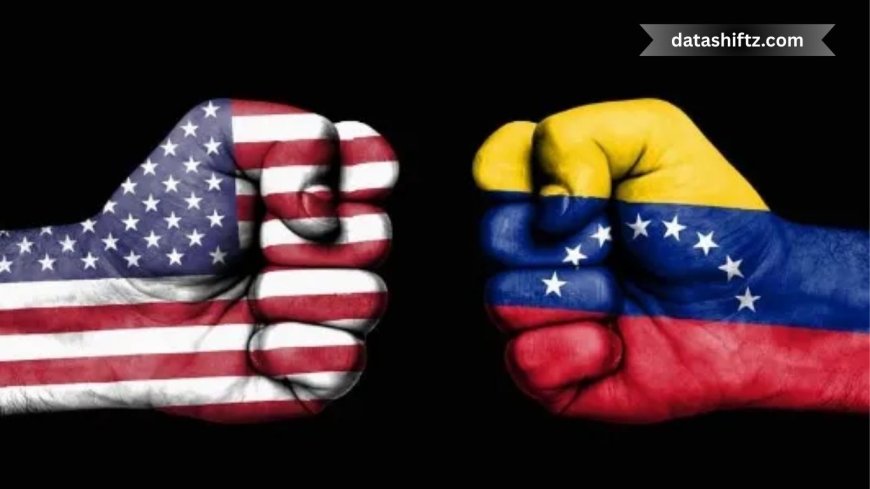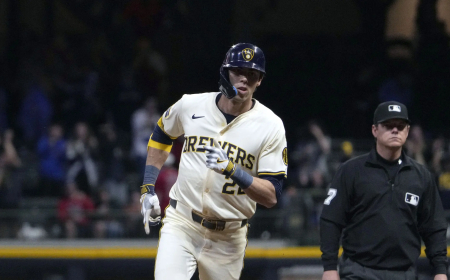Venezuela & USA: Analyzing Current Relations and Future Challenges

In recent years, the relationship between Venezuela and the United States has been marked by tension, political differences, and economic challenges. The geopolitical landscape continues to evolve as both countries navigate their complex interactions. This article explores the current state of Venezuela-US relations, examining political, economic, and diplomatic factors that shape this critical relationship today.
Political Landscape: A Divided View
Venezuela and the United States have a long and complicated history. Once seen as allies, the relationship began to deteriorate in the late 20th century, primarily due to political ideologies and international relations.
Venezuelan Politics and the US Response
Venezuela's political climate is dominated by President Nicolás Maduro, who has been in power since 2013 after the death of his predecessor, Hugo Chávez. The Maduro government is rooted in socialist principles, with close ties to countries like Russia and China, while it remains at odds with the United States. Washington has repeatedly condemned Venezuela's political repression, accusing Maduro of undermining democracy, curbing civil liberties, and engaging in corrupt practices. The U.S. has imposed several rounds of sanctions against Venezuela, targeting officials, industries, and the country's oil sector, which is a critical part of Venezuela's economy.
On the other hand, the Maduro government views the U.S. as an imperial power interfering in its sovereignty, accusing Washington of attempting to undermine its administration and destabilize the country. The U.S.'s stance toward Venezuela has been one of consistent opposition, though it has varied in intensity with different presidential administrations.
Opposition and the US Support for Juan Guaidó
In 2019, Venezuela’s political turmoil reached a peak when Juan Guaidó, the head of the National Assembly, declared himself interim president. The United States quickly recognized Guaidó as the legitimate leader of Venezuela, marking a significant shift in Washington’s policy. The U.S. and many other Western nations imposed diplomatic and economic pressure on Maduro's government, hoping to push for a regime change. However, Maduro's grip on power remains strong, and Guaidó's challenge to Maduro has largely failed to gain substantial traction inside Venezuela.
Despite the lack of major internal change, the U.S. continues to support Guaidó, providing financial assistance and humanitarian aid. However, this has not been enough to bring about a political shift, and Venezuela's internal divisions have only deepened.
Economic Ties: The Impact of Sanctions
The economic relationship between Venezuela and the U.S. has been strained due to the sanctions imposed by Washington. These sanctions have severely impacted Venezuela’s oil industry, the backbone of its economy. The U.S. government has targeted the Venezuelan state oil company, PDVSA, limiting its access to international markets and denying it the revenue necessary to maintain government functions.
Economic Breakdown and Hyperinflation
Venezuela has been grappling with hyperinflation for several years. The country's economy has contracted by more than 70% since 2013, leading to widespread poverty and a migration crisis. A severe shortage of basic goods, food, medicine, and other essential services has left millions of Venezuelans struggling for survival. While the U.S. sanctions have worsened the economic situation, many economists argue that internal mismanagement and corruption within the Venezuelan government have contributed to the country's crisis.
The sanctions have targeted key sectors of the Venezuelan economy, including:
| Sector | Impact of Sanctions |
|---|---|
| Oil | Limited access to global oil markets, affecting national revenue. |
| Banking | Restrictions on international transactions, hurting the financial system. |
| Agriculture | Reduced access to international markets and financial resources for agricultural production. |
| Infrastructure | Lack of foreign investment in infrastructure development. |
Humanitarian Crisis
The impact of the economic crisis has led to a severe humanitarian disaster in Venezuela. The U.S. has provided humanitarian assistance, but Venezuela's government often refuses outside aid, claiming it is politically motivated. The economic collapse has fueled mass migration, with millions fleeing to neighboring countries, particularly Colombia and other Latin American nations.
Despite U.S. efforts to address Venezuela's humanitarian needs, the situation remains dire, and the Venezuelan economy continues to contract under the weight of sanctions and poor governance.
Diplomatic Efforts: Attempts at Reconciliation
Over the past few years, there have been attempts by both countries to ease tensions and find common ground. The Biden administration has signaled a potential shift in approach toward Venezuela, emphasizing diplomacy over direct confrontation.
Diplomatic Channels Opened
In 2021, the U.S. engaged in indirect talks with Venezuela, hoping to reestablish some form of dialogue. These talks primarily focused on potential easing of sanctions in exchange for democratic reforms or cooperation on regional security issues. While the Maduro government remains suspicious of U.S. intentions, it has expressed a willingness to engage in diplomatic negotiations under certain conditions.
Regional Influence and the US Role
Venezuela remains a key player in Latin America, and its relationship with the United States will have broader implications for the region. U.S. efforts to maintain a strong presence in Latin America—through alliances like the Organization of American States (OAS) and by providing aid to neighboring countries affected by Venezuela's crisis—are crucial for regional stability. Washington has also used its leverage over international financial institutions, such as the World Bank and the International Monetary Fund, to apply pressure on Venezuela.
Diplomatic Relations:
-
Sanctions Relief: A potential avenue for dialogue could involve easing U.S. sanctions if Venezuela demonstrates progress in addressing human rights abuses and political reforms.
-
Humanitarian Aid: The U.S. continues to provide humanitarian assistance to Venezuela's citizens, though the Maduro government rejects foreign aid.
-
Regional Cooperation: There may be opportunities for the U.S. and Venezuela to cooperate on regional issues such as drug trafficking and border security.
Conclusion: A Long Road Ahead
The relationship between Venezuela and the United States remains fraught with tension, economic struggles, and political discord. While there have been some diplomatic openings, significant challenges remain for both countries. The U.S. will likely continue to pressure Venezuela for democratic reforms, while Venezuela will continue to resist foreign interference. It is clear that the path forward requires not only diplomatic dialogue but also tangible actions that can improve the living conditions of Venezuelans and ease regional instability.





























